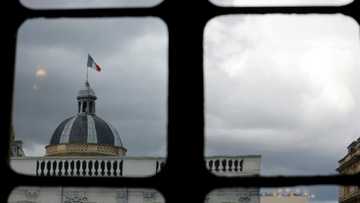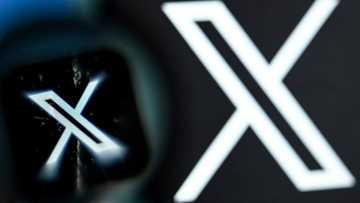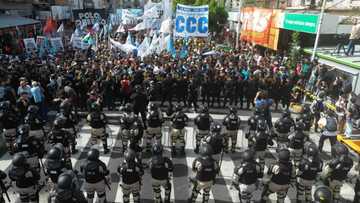Russia's Election Was Mockery of Democracy, Putin's Critics Say
- President Vladimir Putin secured a landslide victory in Russia's 2024 presidential election, solidifying his stronghold on power
- The election process was marred by accusations of fraud and intimidation, with many analysts viewing it as a move to legitimise Putin's controversial actions
- Independent observers, including the Russian vote monitoring group Golos, criticised the election as fraudulent and corrupt
- NATO Secretary-General Jens Stoltenberg and PACE President Theodoros Rousopoulos both questioned the legitimacy of the election
PAY ATTENTION: The 2024 Business Leaders Awards Present Entrepreneurs that Change Nigeria for the Better. Check out their Stories!
Moscow, Russia - President Vladimir Putin has extended his firm grip over power in Russia with victory in the 2024 presidential election.
Putin's victory at the polls was never in doubt, with most analysts viewing it as a process meant to legitimise his controversial actions in recent years.
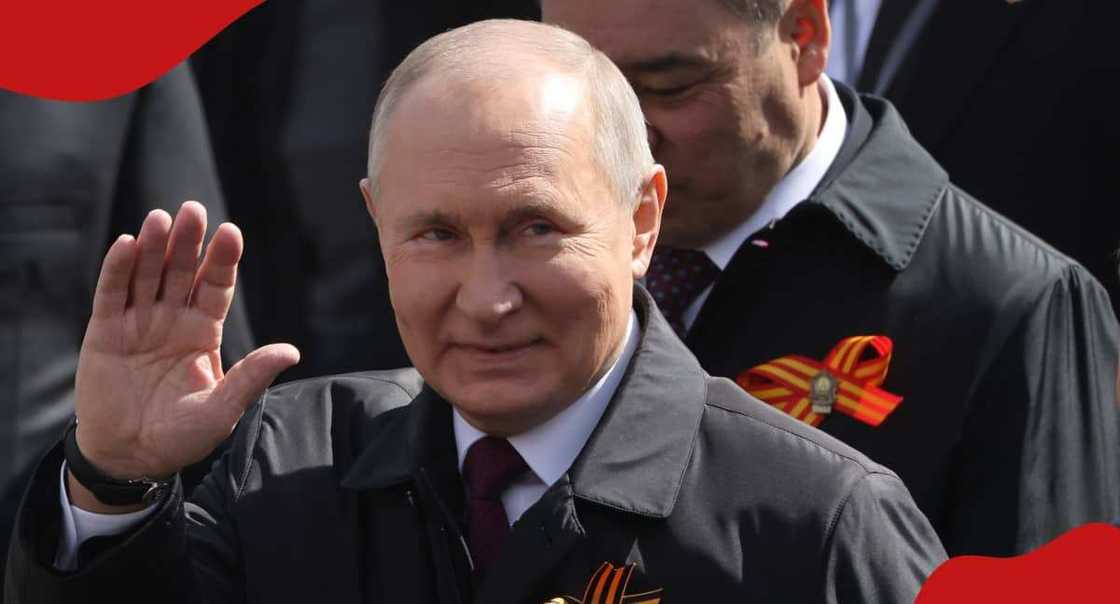
Source: Getty Images
The lead-up to the polls has been considered one of the harshest crackdowns on dissent since Soviet times.
Presidential candidates were disqualified from this year's polls under various laws as Putin ensured nobody threatened his fifth term in office.
Russia’s Central Election Commission said Monday, March 18, that with all the precincts counted, Putin got 87% of the vote.
The Central Election Commission chief, Ella Pamfilova, said that nearly 76 million voters cast their ballots in favour of the incumbent.
In power since the last day of 1999, he is now on course to become the longest-serving Russian leader in more than two centuries.
Election observers rubbish Russian polls
An independent Russian vote monitoring group, Golos, described the vote as the most fraudulent and corrupt in Russia's history.
Golos, which means voice, said the three-day election could not be considered genuine since the campaigns took place in a situation where articles of the Russian Constitution were being disregarded.
"Never before have we seen a presidential campaign that fell so far short of constitutional standards," said the group.
According to the observer group, Golos said examples of voter intimidation included the presence of law enforcement officers in polling stations.
They said there were cases where heavily armed officers peered over voters' shoulders to read their ballots.
There were scattered incidents of protests at polling stations, with some disgruntled Russians setting fire to voting booths or pouring green dye into ballot boxes.
NATO discredits Russia's election
North Atlantic Treaty Organization (NATO) Secretary-General Jens Stoltenberg has also cast doubt on the credibility of the Russian election.
During a news conference in Tbilisi, Georgia, Stoltenberg said Russian elections were neither legal nor fair.
He further chided the Putin administration for holding elections in occupied territories, terming it completely illegal.
"Russia's organisation of elections in occupied parts of Georgia and Ukraine is completely illegal and Russia's presidential election was clearly neither free nor fair. Georgia is facing complex security challenges. Russia persists in its pursuit of its imperial ambitions, and in Ukraine, the situation on the battlefield remains difficult. So, it is vital that we continue to step up our support," he said.
Elections in occupied territories
Ahead of the elections, women with name tags and huge stacks of papers have been knocking on every door in the Russia-occupied parts of four Ukrainian regions.
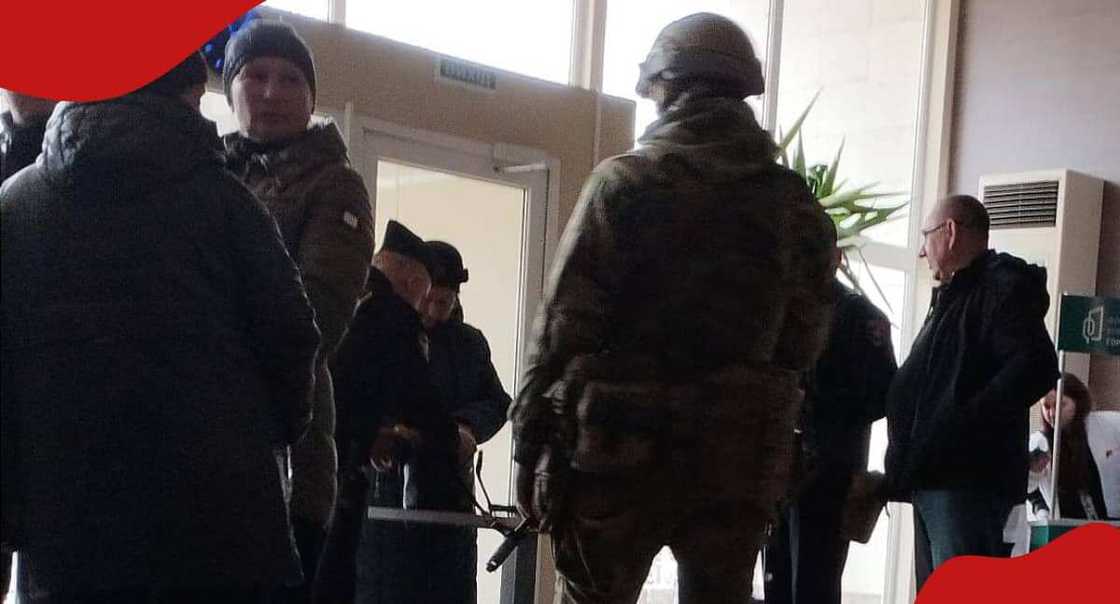
Source: UGC
Al Jazeera reported that they asked residents for their IDs and nudged them to fill in an early ballot form with the names of four candidates in Russia’s presidential election.
The Ukrainians rarely refused to fill in the ballot for a very persuasive reason, a masked, gun-toting Russian serviceman towering next to the official and a car filled with more armed men nearby.
"There’s no secrecy of the vote," a former resident of Mariupol told Al Jazeera, speaking about how her friends and relatives voted.
Putin's legitimacy questioned
Following the Russian presidential election, Parliamentary Assembly of the Council of Europe (PACE) President Theodoros Rousopoulos said the polls lacked legitimacy.
In a statement, Rousopoulos pointed out that all hallmarks of democratic elections had been disregarded, adding the opposition had been silenced.
"There were no genuine alternative candidates, no free media, no credible observers present. Civil society has been silenced. And abthe ove all, this election has also been conducted on the illegally occupied and annexed territory of Ukraine. All political opposition has been brutally suppressed, and any critics of the regime are either imprisoned or have been forced out of the country," he said.
He urged the European community not to recognise Putin’s legitimacy as president.
We call on them to cease all contact with Putin, except in the pursuit of peace and for humanitarian purposes, for example in organising prisoner exchanges or to bring home the lost children of Ukraine," he added.
Putin to run for re-election
Legit.ng earlier reported that Putin, who has been president of Russia since 2012 announced his intention to run for re-election in March 2024.
On Friday, December 8, 2023, Putin said he would seek a new six-year term.
The announcement follows months of speculation over whether the 71-year-old plans to seek six more years in office after constitutional amendments in 2020 reset his term count.
PAY ATTENTION: Stay Informed and follow us on Google News!
Source: TUKO.co.ke



